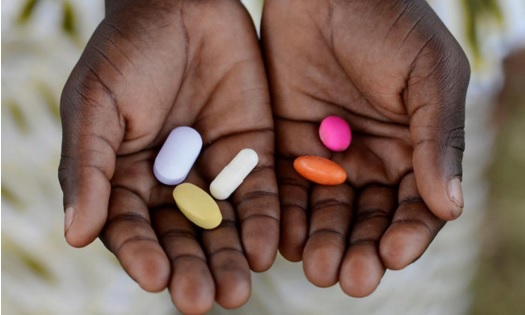
Most noted are Antibiotics, antimalarial, and antihypertensive medicines
ANALYSIS | THE INDEPENDENT | Up to 23% of medicines used in African medical facilities are either substandard or falsified. This includes medicines that do not meet quality specifications and are deliberately substandard or falsified and circulated in the market. Sadly, many substandard, falsified, unlicensed, and unregistered medicines are by their very nature, difficult to detect.
Although medicines that are substandard or are often designed to appear identical to genuine medicine, they often have many public health and socioeconomic impacts. This means that although they are often designed to appear identical to genuine medicine, they often have many public health and socioeconomic impacts.
They are a major cause of sickness and death due to treatment failure, adverse drug reactions, drug resistance development, economic strain, and loss of confidence in medicine, healthcare providers, and various health services, as well as in those who manufacture, distribute, and dispense or sell products.
This revelation was made in a research report entitled `Prevalence of substandard, falsified, unlicensed and unregistered medicine and its associated factors in Africa: a systematic review’ that was published July 15 in the Journal of Pharmaceutical Policy and Practice.
The research which has been praised for describing a “major public health concern” was done by Biset Asrade Mekonnen, Muluabay Getie Yizengaw, Minichil Chanie Worku from Bahir Dar University in Ethiopia. They blamed poor market regulatory permission, Free trade zones, poor registration, high demand, and poor importation standards for contributing to the prevalence of these problems.
“Understanding the prevalence of substandard, falsified, unlicensed, and unregistered medicine in Africa is essential for the development and implementation of initiatives,” the report said, “To make informed decisions and improve a country’s supply chain and drug post-market surveillance systems, concerned bodies must be aware of the extent to which substandard, falsified, unlicensed and unregistered medicines are introduced into the market.”
According to their findings, the overall estimated prevalence of substandard/falsified medicines in Africa was 22.6%. The average prevalence of unregistered medicines was 34.6%. Antibiotics, antimalarial, and antihypertensive medicines accounted for 44.6%, 15.6%, and 16.3%, respectively. Approximately 60.7% were antihelmintic and antiprotozoal medicines.
The use of substandard, falsified, and unregistered anti-malarial medicines has many public health implications and, for example, is responsible for 12,300 deaths per year in Nigeria.
Due to the development of anti-malarial resistance, treatment efficacy was decreased, and the cost of malaria treatment increased by 11%, which has a total economic impact of 11% and leads to 11% of total productivity loss.
Substandard and falsified medicines are complex but critical global health issues. The World Health Organization (WHO) estimates that 10% of medicines worldwide are substandard or falsified and fail quality testing in low- and middle-income countries.
Falsified medicines could comprise approximately 50% of the drug market worldwide; many of these products are sourced from developing countries. According to the Organization for Economic Co-operation and Development (OECD) report, the annual cost of the global trade of falsified medicines is approximately US$4.4 billion.
The global trade of substandard and falsified medicines is also increasing daily in low- and middle-income countries because consumer demand for medicines is also increasing.
“Substandard, falsified, and unregistered medicines are highly prevalent in Africa, and attention has not been paid to the problem,” the researchers said, “Preventing these problems is the primary duty of every responsible nation to save lives.
According to them, antibiotics, antimalarial, anthelmintic, and antiprotozoal are the most commonly reported substandard, falsified, and unregistered medicines. They recommend a consistent supply of high-quality products, enhancement of registration, market regulatory permission, and importation standards are essential to counter the problems in Africa.
 The Independent Uganda: You get the Truth we Pay the Price
The Independent Uganda: You get the Truth we Pay the Price



